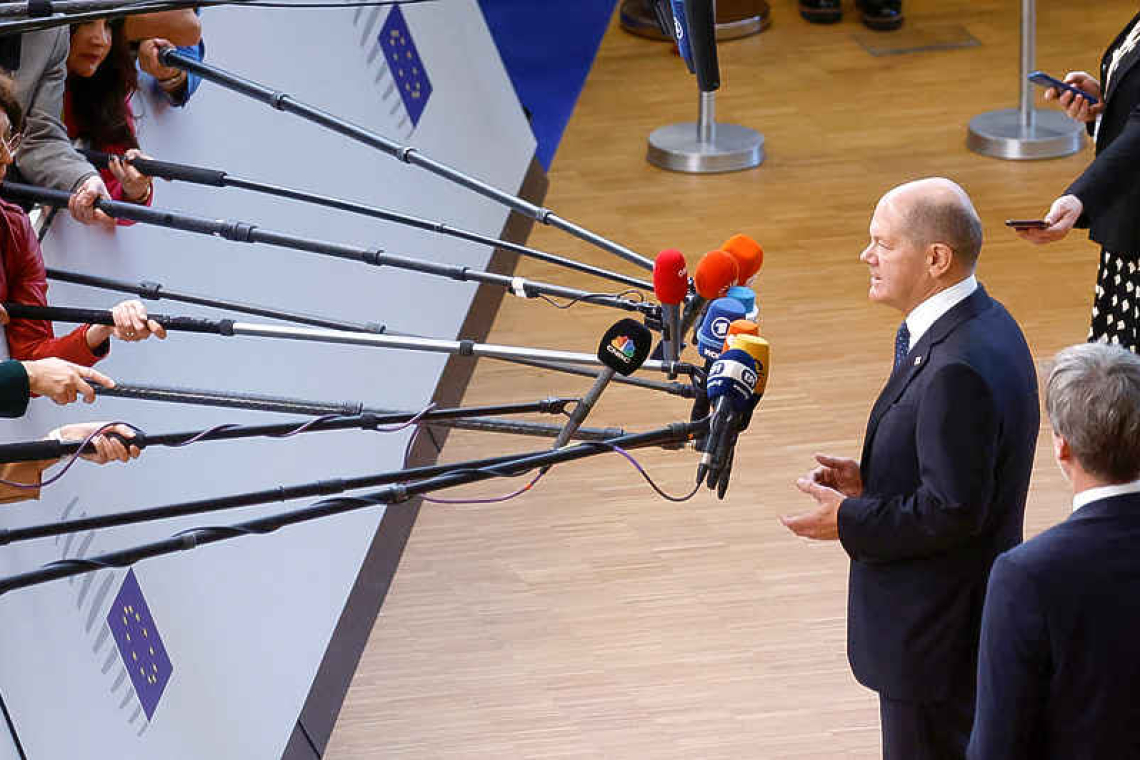BRUSSELS--Prime ministers of Italy and Belgium were among those to air frustration on Thursday with Germany's refusal to cap gas prices as the 27 European Union leaders met for a second summit in two weeks to try mitigate the bloc's acute energy crunch.
The EU is grappling with high energy prices driving inflation and raising the prospect of recession across the continent, a situation aggravated by Russia cutting gas flows following its February invasion of Ukraine.
"Our unity must be real ... We need to move faster and deeper," European Parliament President Roberta Metsola said in a speech as the summit began.
The 27 countries already agreed to fill gas storages and claw back revenues from energy firms to spend on helping consumers with crippling bills. On Thursday, they were expected to endorse an alternative price benchmark for liquefied natural gas and joint gas buying. But Germany - the biggest EU economy - leads a small camp persistently refusing calls from 15 other EU countries to cap gas prices, saying that would risk suppliers freezing Europe out, and reduce incentives for energy saving.
"We are asked to show solidarity in sharing energy but there is no solidarity on our calls for containing prices," Italy's Mario Draghi told his peers, according to an official familiar with the discussions behind closed doors. "This way of thinking has already caused immense damage: we financed (Russian President Vladimir) Putin's war, caused the recession."
Prime Minister Alexander de Croo of Belgium, which exports electricity to the neighbouring Germany, shared the frustration. "Solidarity should not just be on supply - it should also be on prices," he told the gathering, according to the official.
Beyond disagreements over whether and how to put a ceiling on gas prices, EU leaders are also at odds over spending plans by countries with the deepest pockets, which others complain are unfair and undermine competition on the bloc's single market. Chancellor Olaf Scholz, defending his country's unmatched 200 billion euro support package, said Germany had acted in solidarity with other EU members during the COVID-19 pandemic and pointed to other countries also supporting energy consumers.
"But of course we have to look closely at what we decide to ensure that it works," he said as he arrived for the summit. "We need to carry this off together."
The most contentious issue facing the leaders is whether and how to cap gas prices. "I think we could be in for a long night," Dutch Prime Minister Mark Rutte said as he arrived in Brussels.
While the Netherlands oppose a cap, Spanish Prime Minister Pedro Sanchez made clear he was "not leaving without conclusions that will send the right signal" on prices, said the official. But Scholz was "not buying it", added the person, who spoke under condition of anonymity.
A draft of the leaders' summit conclusions, seen by Reuters, would ask the EU's executive to "take work forward" on both a "temporary dynamic price corridor on natural gas transactions" and a price cap on gas used to generate electricity.
In the absence of stronger EU response, Spain and Portugal have already implemented the latter at home. Separately on Thursday, the two also agreed with France to build a sea-based pipeline between Barcelona and Marseille.
Such regional initiatives highlight EU countries' diverse energy mix and interests, suggesting the leaders' meeting risks falling short on joint short-term action to tackle high energy prices ahead of winter.







